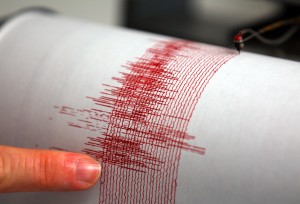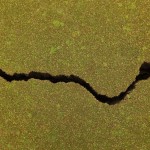What’s Behind the Earthquakes in Dallas?
Tremors on the Rise Across Texas
People in Dallas were surprised by a swarm of small earthquakes that started shaking the city a couple of days ago. There have been a dozen by the latest count. And the quakes, though new to the Dallas area, are just the most recent in a major upsurge in earthquakes in Texas over the last few years.
Earthquakes were pretty much unheard of in the Dallas area until 2008. Since then there have been a lot of these swarms of quakes. In Irving, Texas, where this new cluster is located, there have been more than 50 in the last several years, according to the city manager. This current swarm started around September.
Possible Explanations
This all started happening in 2008, a year that also marked a boom in oil and gas exploration in Texas. A lot of people say there’s a link there. Not just in Texas, but across the country, studies have shown how injecting fluids into the ground can cause quakes. In the oil and gas business, people use injection wells for disposing of drilling wastewater.
Not just in Dallas
North Texas isn’t the only place feeling quakes, it’s happening in Ohio, Arkansas, and Louisiana as well. When these quakes strike around Dallas or Fort Worth, people pay attention, as there are a lot of people there. And they can be vocal and politically engaged. When a swarm hit near the town of Azle more than a year ago and led to locals organizing for the state to respond, that prompted the state’s oil and gas regulator – the Railroad Commission – to actually hire a seismologist. But there have been quakes in other parts of Texas as well.
In fact, just an hour or so after the 3.5-magnitude quake hit Dallas on Tuesday, a quake of equal strength hit near Snyder, in West Texas. Snyder has seen a lot of quakes lately, and at least one study suggests that’s due to drilling activity. In East Texas, towns like Timpson have had quake swarms, with tremors measuring as high as 4.9. There are disposal wells around there that have been linked to the quakes, but we don’t hear as much about that because there are fewer people.
Heather DeShon, a seismologist at Southern Methodist University studying these quakes, says there was a quake in Irving in November that didn’t get nearly as much attention.
“The 3.3 that occurred in November occurred on a Saturday night at like 9 p.m., and these are in Irving. The events are pretty close to businesses and things like that, so a lot of those buildings are empty,” DeShon said.
What Comes Next
The Railroad Commission says it isn’t investigating these quakes, even though it just hired a seismologist. A spokesperson for the agency said investigating quakes is not that person’s job. Instead, he puts communities in touch with SMU researchers like DeShon. SMU just put a new seismic monitor in the area of the Dallas quakes, and it announced today that it will deploy 22 more in the coming days to study them more closely.
But DeShon said studies like these can take years before they have some results. The SMU team is still working on producing a paper from their research on the Azle quakes last year.
In the meantime, it seems a safe bet there will be more earthquakes in Texas.


